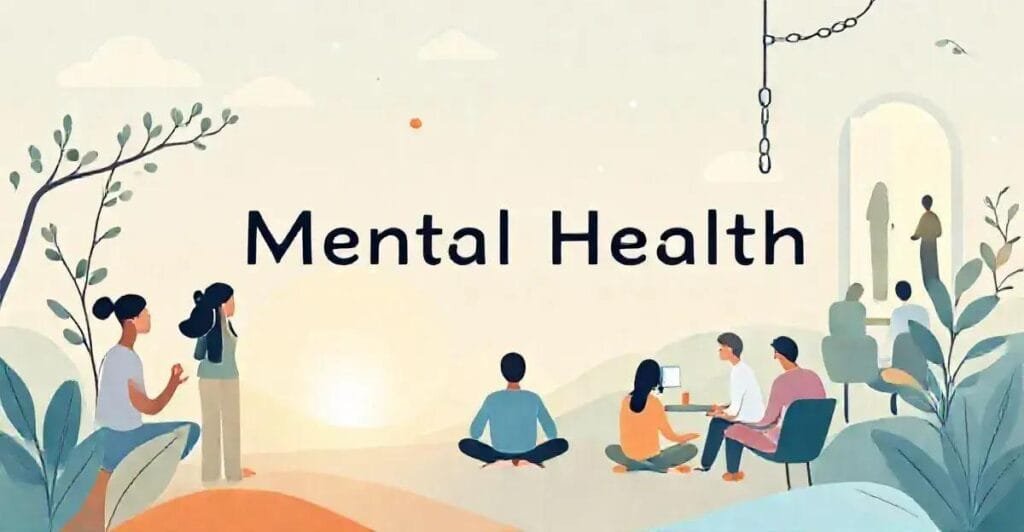Effective Strategies for Managing Stress and Anxiety
In today’s fast-paced world, stress and anxiety have become common experiences for many. The hustle and bustle of daily life, combined with personal and professional pressures, often lead to a heightened sense of stress and anxiety. Understanding how to manage these feelings is crucial for maintaining mental health and overall well-being. Stress management tips for daily life and effective anxiety relief techniques can offer significant benefits, enabling individuals to navigate life’s challenges more smoothly.

Managing stress and anxiety involves both short-term and long-term strategies. While it’s normal to experience occasional stress, chronic stress and ongoing anxiety can have serious implications on one’s physical and mental health. Thus, learning how to cope with stress effectively is not just beneficial but necessary. Various strategies for managing stress focus on reducing anxiety naturally and promoting a healthier mental state. This guide explores some of these strategies, providing insightful tips and practical applications that aim to enrich your life.
Understanding Stress and Anxiety
What Are Stress and Anxiety?
Stress is the body’s natural reaction to challenges or demands. It manifests physically and psychologically, often triggered by work-related issues, financial worries, or relationship problems. Anxiety, on the other hand, extends beyond normal stress levels, characterized by persistent worry or fear about everyday situations. While occasional anxiety is a normal part of life, chronic anxiety can significantly impair daily functioning.
It’s essential to differentiate between stress and anxiety, as both require tailored strategies for effective management. Stress management techniques aim to decrease stressors and improve coping mechanisms. Meanwhile, anxiety relief tips focus on reducing the symptoms and finding long-term solutions.
Consequences of Unmanaged Stress and Anxiety
Failing to address stress and anxiety can lead to severe health repercussions. Chronic stress can contribute to heart disease, hypertension, diabetes, depression, and anxiety disorders. These conditions can further deteriorate one’s quality of life, leading to a vicious cycle of stress and health issues. Therefore, effective stress reduction and managing anxiety is crucial to preventing these adverse outcomes.
For example, consider someone in a high-pressure job. Without proper stress management techniques, they may begin to experience signs of burnout, withdrawal from social situations, or chronic fatigue. Implementing strategies for managing stress early on can prevent these symptoms from worsening.
Effective Strategies for Managing Stress
Mindfulness and Meditation
Mindfulness involves being present and fully engaging with the current moment. This practice helps reduce anxiety naturally by breaking away from detrimental thought patterns that exacerbate stress. Meditation, a form of mindfulness, allows individuals to focus inward and cultivate a state of calm and balance. Even just five minutes a day can make a substantial difference in mental clarity and stress levels.
For example, incorporating guided meditation into a morning routine can set a positive tone for the day. Applications like Headspace or Calm offer structured programs that help beginners establish a routine.
Physical Activity and Exercise
Regular physical activity is a potent stress reliever, releasing endorphins that improve mood and decrease stress hormone levels. Whether it’s a brisk walk, a yoga session, or an intense workout, exercise has been proven to enhance mental health significantly.
Engage in activities you enjoy, such as dancing, hiking, or cycling. These not only aid in coping with stress but also contribute to overall well-being and resilience.
Time Management and Organization
Effective time management alleviates stress by creating a sense of control over one’s tasks and responsibilities. Organizing and prioritizing daily activities can reduce feelings of being overwhelmed and improve efficiency.
Consider utilizing tools such as planners, to-do lists, or digital apps like Trello or Asana to track and manage tasks. By breaking larger tasks into manageable steps, you can reduce anxiety about workload and focus on single tasks rather than feeling swamped.
Leveraging Support Systems
Social Support Networks
Strong social connections play a crucial role in buffering against stress and anxiety. Friends, family, and support groups offer emotional support, practical help, and advice, which can be vital during tough times. Having someone to talk to can greatly help in reducing stress levels and provide a different perspective on challenges.
Consider joining local support groups or online communities related to personal interests or stress management. These platforms can offer advice and encouragement, contributing positively to one’s mental health strategies.
Professional Help and Therapy
There is no shame in seeking professional help to alleviate stress and anxiety. Therapists can provide coping strategies specifically tailored to individual needs, such as cognitive-behavioral techniques, which are remarkably effective for anxiety relief.
Many find success through talking therapies, such as CBT (Cognitive Behavioral Therapy), which helps in identifying negative thought patterns and developing more constructive ways of thinking and behaving.
Alternative and Natural Therapies
Alternative therapies, such as aromatherapy or acupuncture, can complement traditional approaches to stress and anxiety management. Essential oils, like lavender or chamomile, are reputed for their calming effects and can be used in diffusers or during baths for relaxation.
Similarly, acupuncture is an ancient practice that some find beneficial in managing stress and promoting relaxation. Before pursuing such treatments, it should be noted that individuals should consult healthcare professionals to ensure safe and effective use based on personal health conditions.

FAQ Section
What are quick stress management tips for daily life?
Quick stress management tips include taking deep breaths, meditating for a few minutes, or taking a short walk outside. These activities help refocus attention and calm the mind. Additionally, practicing gratitude by writing down things you are thankful for can immediately shift your mindset and reduce stress.
How can I reduce anxiety naturally?
To reduce anxiety naturally, consider regular exercise, maintain a balanced diet, and ensure sufficient sleep. Natural supplements like omega-3 fatty acids and herbal teas such as chamomile or valerian root may also help. Mindfulness practices combined with deep-breathing exercises can further stabilize emotions.
What stress management techniques are most effective?
Some of the most effective stress management techniques include regular physical exercise, mindfulness meditation, and adequate sleep. Cognitive-behavioral strategies to challenge negative thoughts and a supportive social network can also significantly mitigate stress impacts.
Are there any specific strategies for managing stress at work?
To handle stress at work, it’s important to prioritize tasks and manage time effectively. Taking regular breaks, using ergonomic office furniture, and maintaining open communication with colleagues and supervisors can help. Implementing relaxation techniques, such as deep-breathing exercises during breaks, can also be beneficial.
How does professional therapy contribute to mental health strategies?
Professional therapy can provide valuable tools and perspectives that enhance personal stress management strategies. Through therapy, individuals learn to identify stress triggers, develop adaptive coping mechanisms, and build resilience. It also offers a supportive space to express emotions and work towards personal goals.
Conclusion
Stress and anxiety are inevitable parts of life, but with the right strategies, they can be effectively managed. By incorporating stress management tips for daily life, such as mindfulness and exercise, individuals can navigate stressors with a balanced perspective. Meanwhile, developing robust support systems and seeking professional help when needed can further aid in maintaining mental well-being.
Remember, the journey to effective stress reduction and coping with anxiety is unique for everyone. It involves experimenting with different strategies and finding what resonates personally. Importantly, prioritize self-care and seek timely help to ensure a healthier state of mind.
The path to managing stress and anxiety may be challenging, but it is also empowering. By understanding your responses to stressors and implementing practical solutions, you not only improve your mental health but also enhance your quality of life.
Suggested Video Topics
- Top 5 Mindfulness Techniques for Reducing Anxiety
- Workout Routines to Combat Stress and Boost Mental Health
- How to Build a Support System for Effective Stress Management


